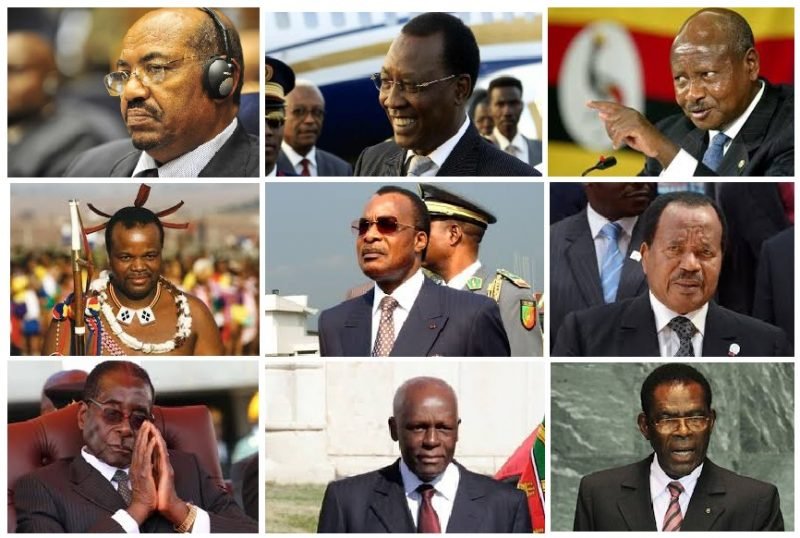Meet the most ruthless African dictators who, despite trying to develop their countries, have in turn made the citizens of their countries regret ever electing them amid the death, poverty, economic stagnation, and ruin they leave behind. Leadership is a gift from God and should come with integrity, knowledge, empathy, and above all, a sense of responsibility. Some African leaders maintain that exploitation of power is the way to go, and this has made them the most ruthless African dictators of all time. Probably as years go by, we shall have a few more until we learn to vote for the right ones, but for now, maybe the beautiful ones are not yet born.
1. Teodoro Obiang Nguema Mbasogo (Equatorial Guinea)
Born on the 5th of June 1942, Teodoro is the second president of Equatorial Guinea. In 1979, Teodoro Obiang became president, which saw him top the charts as one of the oldest and longest-serving dictators in Africa. He ruled for over 38 years. Amazingly, he is still in power. Funny but not, Teodoro is Francisco Macias Nguema’s nephew, who was also once president of Equatorial Guinea. In a bloody military coup, the Teodoro sentenced his uncle, Francisco, who was then president, to death by firing squad for genocide and other crimes he had committed.
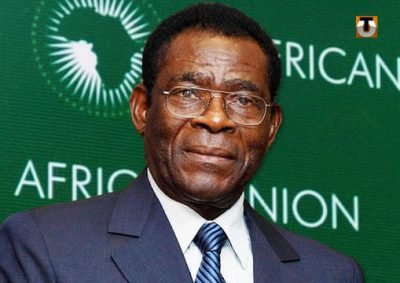
During his regime, he oversaw Equatorial Guinea as an oil producer in the 1990s and was chairperson of the African Union from January 2011 to 2012.
This is where things get interesting. Teodoro Obiang is referred to as “The county’s god.” Despite his success, just like his uncle, Teodoro is accused of unlawful murders, prisoners’ torture by security forces, government-sanctioned kidnapping, and rumors of cannibalism. He is also rumored to be corrupt and selfish, witnessed to keep more of the oil profits. He has used these profits to enrich his family and has forgotten the citizens of Equatorial Guinea as Forbes estimate his wealth to be approximately $600 million.
2. Francisco Macías Nguema (Equatorial Guinea)
Francisco Nguema was born on the 1st of January 1924 and died on the 29th of September 1979 in Malabo, Equatorial Guinea. His presidential term was a duration between October 1968 to 1979 August. He was the first president of Equatorial Guinea and ruled the nation for about 11 years. His nephew, Teodoro Obiang Nguema Mbasogo, later overthrew him in 1979 and ordered a firing squad to kill him.

He is also considered one of the worst dictators in modern African history because of his deranged behaviors and brutal regime. Francisco executed members of his family, and no wonder his nephew did the same to him. He killed families and destroyed villages after he had directly empowered himself as the government and institution. Teodoro also ordered the sale of boats in his country after a third of the nation’s population had fled, running away from his brutality. Later, he banned all people from the shoreline to prevent them from escaping.
3. Paul Biya (Cameroon)
Paul Barthélemy Biya’a Bi Mvondo, known as Paul Biya in Mvomeka Cameroon, was born on the 13th of February 1993. He is the current president of Cameroon. Paul Biya has been the president of Cameroon for over 35 years since 1982, the 6th of November. He came into power through a political struggle that happened between 1983-1984. Paul Biya started his presidential term in 1982. By then, the nation was one of the strongest with diplomatic relations in Africa. During his regime, he organized farcical elections and paid off international interviews to clarify and certify the elections as free and fair. The dictator has been accused of human rights abuse.

4. Sékou Touré (Guinea)
Sékou Touré was president of Guinea from 1958 to 1984, and during his term, he survived various assignation attempts, not until he died of heart failure in 1984. He ruled the nation for over 26 years. Over the years, the president banned opposition parties and declared his own as the only legal party. He is also accused of cases of human rights abuse and legally unwarranted murders.
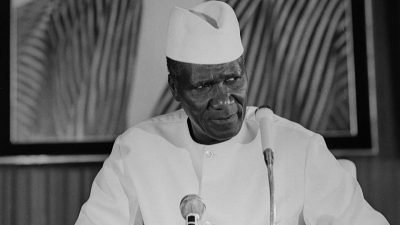
5. Omar Hassan Ahmad Al-Bashir (Sudan)
Al-Bashir became president of Sudan from 1989 to 2019 after taking power in a military coup. He is known as one of the cruelest dictators in Africa. Omar Hassan was the seventh president of Sudan, born on the 1st of January 1944 before he stepped down in 2019 April. He ruled for 30 years. During his term as president, the International Criminal Court (ICC) summoned the dictator for his crimes such as genocide, destruction, and human rights abuse, not limited to rape, torture, murder.
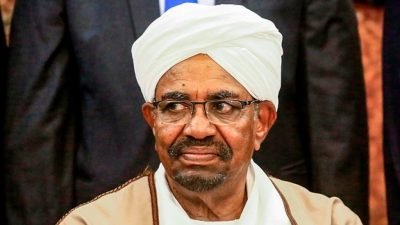
6. Gaafar Nimeiry (Sudan)
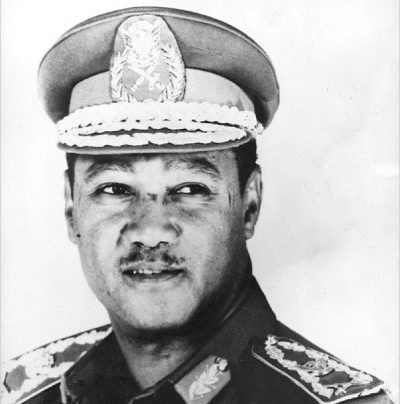
Gaafar Nimeiry came to power in 1969 after a military coup. He was president from 1969 to 1985. He ruled for over 16 years. His party, the Sudanese Socialist Union, saw him sign the Addis Ababa Agreement that ended the Sudanese Civil War. This brought peace and stability to the nation. Gaafar Nimeiry is named a ruthless dictator because he imposed Islamic Sharia Law in 1983 and ruined the Sudanese economy. His borrowing skills saw Sudanese currency lose 90% of its value against international currencies. When he was thrown out of power, he took to exile in Egypt from 1985 until 1999. Later, Gaafar Nimeiry became a presidential aspirant again in the 2000 Sudan elections that got him about 7% of votes before he died in May 2009.
7. Yahya Abdul-Aziz Jemus Junkung Jammeh (Gambia)
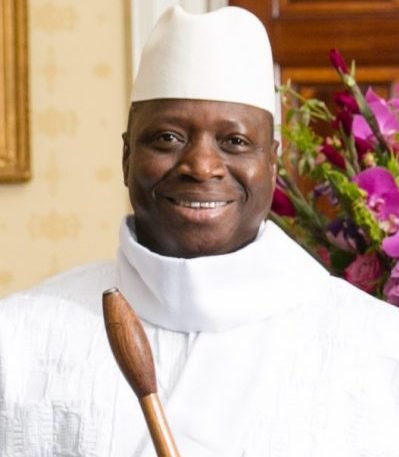
Yahya Abdul-Aziz was born on the 25th of May 1965, in Kanilai, Gambia. He ruled as president for over 23 years before his exile to Equatorial Guinea. He was a chairperson of the Armed Forces Provisional Ruling Council from 1994 to 1996. Yahya became president again after getting re-elected in 2016, but the elections results were rejected. He was later defeated, and he finally left for exile to Equatorial Guinea after pressure from the United Nations (UN), African Union (AU), and Economic Community of West African States (ECOWAS). His hatred toward homosexuality forced him to threaten to cut any gay throat in the Gambia. His regime is allegedly said to have abused human rights.
8. Mohamed Siad Barre (Somalia)
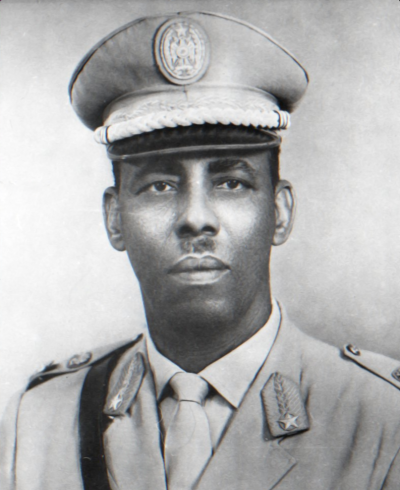
Siad Barre was born in Shilabo, Ethiopia, in 1919. Before Siad Barre passed away on the 2nd of January 1995 in exile in Lagos, Nigeria, he went into power through a Coup d’état in 1969. He ruled for 22 years, from 1969 to 1991, before he was overthrown. Leaving for Lagos, Nigeria, Siad Barre left Somalia without a central authority, which resulted in a war that lasted for over two decades.
He chaired the African Union and created models of agricultural factories that boasted Somalia’s economy during his early regime. Unfortunately, his administration hit the rocks after they marked him as a human rights abuser. The United Nations (UN) Development Program named his administration one of the worst in Africa’s human rights records.
9. Jose Eduardo dos Santos (Angola)
Born in Luanda, Angola, on the 28th of August 1942, Jose Eduardo dos Santos is Africa’s second-longest-serving president. He ruled for over 38 years from 1979 and stepped down in 2017. During his regime, he developed the country’s economy that made it the third-largest economy in Sub-Saharan Africa after Nigeria and South Africa. In his 38th-year of administration, José Eduardo allegedly misused and diverted public funds.

The profits from Angola’s Oil was used for his gain, as his family is rumored to have a large sum of personal wealth. José Eduardo dos Santos is also the father of Africa’s richest woman, Isabel Dos Santos. Many believe that she accumulated wealth during her father’s corrupt regime when embezzlement of funds was a daily cup of coffee. Jose’s government was decorated with claims of political oppression and human rights abuse.
10. Robert Mugabe (Zimbabwe)
Robert Mugabe was born on the 21st of February 1924 in Kutama, Zimbabwe. He was the most educated African president and the oldest dictator in Africa who attained power in 1980. At that time, he was the prime minister of Zimbabwe and later held presidential power in 1987 December. He was forced to resign in 2019 after 30 years of rule. He boasted that Zimbabwe’s education system was among the best before the United Nations (UN) discovered that 80% of the Zimbabwean population is unemployed.
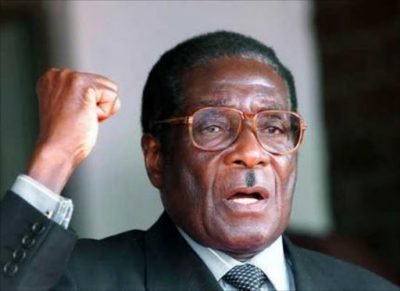
The hyperinflation of Zimbabwe’s currency was worthless. The exchange value of the Zimbabwean dollar is 35 quadrillion to US$1 hence affecting the country’s economy. He later died on the 6th of September 2019 at 95 in Gleneagles Hospital, Singapore, where he had been receiving treatment.
11. Paul Kagame (Rwanda)
Paul Kagame was born on the 23rd of October 1957 in Ruanda-Urundi, Rwanda, and is currently president of Rwanda. After the Guerilla war that ended the 1994 Rwanda Genocide, Paul Kagame became the president of Rwanda in 2000, where he has been ruling for over 20 years. He is the 6th president of Rwanda after the arrest and dismissal of Pasteur Bizimungu. During his term as president, he has developed Rwanda and given the country a path to economic prosperity. As noted by the United Nations (UN), his governance is an exemplary governance in Africa. However, Paul Kagame’s authoritarian regime is accused of suppressing political party opponents, censoring and oppressing the press and abusing human rights.
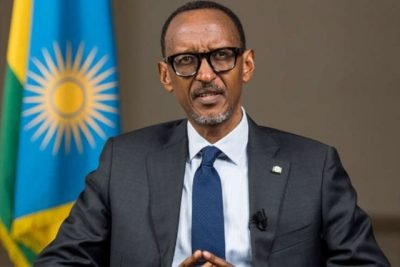
12. Yoweri Tibuhaburwa Kaguta Museveni (Uganda)
Museveni came into power in 1986 after staging a military coup that defeated Apollo Milton Obote, another dictator Ugandans dreaded. Museveni is currently the president of Uganda and has been ruling for 34 years. He is standing for another term, to be elected in January 2021. If elected, that will see him as the longest-ruling president of Uganda, giving his 39 years of rule, almost surpassing and beating the records left by the longest ruling African presidents.
During his term as president, he has developed Uganda by establishing peace and developing different sectors like education, health, tourism, agriculture, transportation, among others. He has given the country a path to economic prosperity, and his governance is noted by the United Nations (UN) to be an exemplary model of governance in Africa.
However, Museveni’s dictatorial regime is accused of suppressing political party opponents and the press and abusing human rights. In recent years, they have accused his government official for encouraging corruption to as the order of the day and propensity to persecute his critics including gay people and journalists.
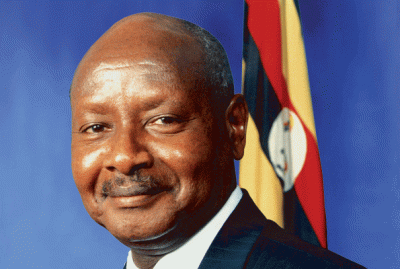
Amnesty International has documented several such controversial decisions that were taken under his jurisdiction. His crimes are not limited to “restrictions of the rights to freedom of expression, association and peaceful assembly of political opposition leaders and their supporters, harassment of journalists, human rights defenders and the violent disruption of their campaign rallies.”
In a statement on the 20th of November 2020, Ugandan Security Minister, Elly Tumwine, said President Yoweri Museveni had given police the power to “shoot to kill” if protestors reach a certain level of violence toward Bobi Wine’s detention, the one who is now running as a presidential candidate.
Ugandans refer to Robert Kyagulanyi as Bobi Wine, the former Popstar. It is confirmed that over 37 people have been killed, and more than 65 wounded in protests following Kyagulanyi’s arrest this year. No presidential candidate apart from Museveni stages successful campaigns, making it an embarrassment to call the Ugandan 2021 elections free and fair.
Museveni oppressed and arrested Col. Kizza Besigye, a former opposition leader of FDC, the same way for over seven years. Museveni’s current biggest threat, Bobi Wine, has been arrested multiple times. Still, the most recent arrest on the 18th of November was because he was being accused of violating safety guidelines that were implemented considering the coronavirus pandemic. After his detention, Bobi Wine was denied the right to contact his attorneys and family members for two days.
The Human Rights Watch has accused Museveni’s government of using COVID-19 precautions to undermine and silence the opposition. Indeed, another presidential contender named Patrick Oboi Amuriat was arrested on the same day for organizing an unlawful presidential campaign. On the other hand, Museveni’s party—the National Resistance Movement—found its parade uninterrupted despite hosting a crowd.
Undoubtedly, President Museveni was told to cease the suppression of his fellow presidential candidates and the journalists who report his actions. They have called on him to exercise accountability for his actions and complex decisions rather than denying the valid accusations against him. His critics say that if a country is to allow its citizens the right to vote, they should do it genuinely and authentically.
13. Hastings Kamuzu Banda (Malawi)
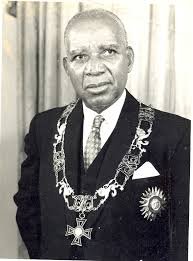
Kamuzu Banda was born on the 25th of November 1997. He ruled Malawi from 1961 to 1994 and is known as one of the greatest dictators of all time. They described his rule as a “Highly repressive autocratic government.” After finishing his term as prime minister, Banda ruled as president of Malawi for 31 years. He helped Malawi fight against colonialism that led to the country’s independence in 1964. Kamuzu Banda abused human rights by torturing and murdering his political opponents. His rule widened the poverty gap, which has seen Malawi as the poorest country in Africa till now.
14. Gnassingbe Eyadema (Togo)

Gnassingbe Eyadema was born in 1935, the 26th of December. He became president of Togo in 1967, after he successfully led a military coup that helped him gain power as president. He was one of Africa’s longest-serving dictators and ruled for solid uninterrupted 38 years. In 2005, his son Faure Essozimna Gnassingbé Eyadéma became president for 16 years since 2005. Because the coup he led was the very first and successful coup in Africa, this led to the rise of other African military coups and later became a trend used by the current African presidents.
Interestingly, Gnassingbé organized presidential elections in 1998 and later canceled them after he lost. He described his action as having an interest in national security. Not different from other presidents on this list, he is also accused of abusing human rights. He died of heart failure in 2005, on the 5th of February in Tunisia.
15. Charles McArthur Ghankay Taylor (Liberia)
Former Liberian president and convicted war criminal, now 72-year-old, Charles McArthur, became the 22nd president of Liberia in 1997. He resigned in 2003 due to the different forces such as international pressure and the Second Liberian Civil War. After his resignation, he exiled himself in Nigeria. During his regime, he was named the “Tyrant of Death” and wasted six years of the Liberian people. His reign was evidence of his actions as they found him guilty of committing crimes like murder, violence, acts of terrorism, among others. He is serving a 50-year sentence in jail for all his crimes against humanity.
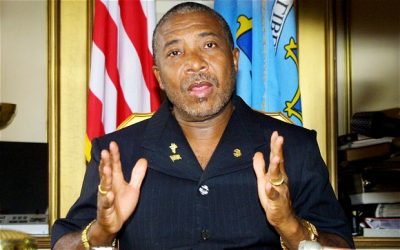
16. Marshal Idriss Déby Itno (Chad)
Marshal Idriss has been the president of Chad since 1990 and is also head of his ruling Patriotic Salvation Movement. Born on the 18th of June 1952 in Berdoba, Chad, in the Bidyat Clan of the Zaghawa ethnic group, Marshal Idriss and his movement backed incumbent presidents’ sack in Libya and Sudan. His actions favored and helped him attain power as Chad’s president for over 29 years. Unfortunately, it’s alleged that he used oil funds to buy weapons to strengthen the Chadian Army instead of its development that saw Chad appear on Forbes’ list as the World’s most corrupt nation.

17. Muammar Muhammad Abu Minyar Al-Gaddafi (Libya)
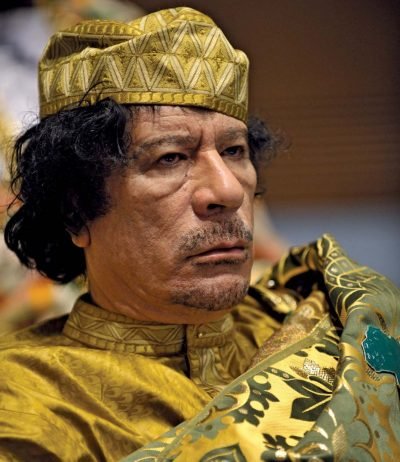
Colonel Muammar Gaddafi was born on the 7th of June 1942 in Qasr Abu Hadi, Libya. He came into power in 1969 after a bloody military coup. Many described him as a political theorist and Libyan revolutionary before he met his death in October 2011. He is named among the most significant dictators in African history since he ruled for 42 years. His reign saw Libya become one of the first developing countries in Africa to own its revenue from oil production. He also provided Libyans with free healthcare, houses, and free education that earned Libya a spot on the list of countries with the best education system.
The charismatic leader had a few loopholes in his reign. He oppressed anyone who came against him and was allegedly responsible for the death of many Libyans. Many Western nations saw him as a selfish leader who wanted to keep everything within Africa, especially for his countrymen. He planned to unite Africans through his theology of the United States of Africa such that the continent could become one enormous country, but sadly he met his fate before realizing his dream, leaving one to wonder how he would have achieved such an imaginable aspiration.
18. Idi Amin Dada Oumee (Uganda)
Idi Amin was born in a town called Koboko in the Northern region of Uganda on the 17th of May 1925. He was the president of Uganda for over eight years after seizing power in a military coup in January 1971 from Milton Obote. He gave himself all kinds of prestigious titles, including being the last King of Scotland because he believed no one was superior to him in the entire world.
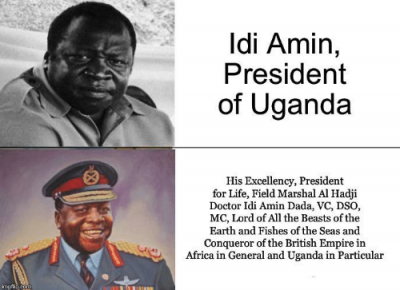
Despite his sense of humor, he was a ruthless dictator because unwarranted murders of people, corruption, political repression, and doubtful manners of cannibalism characterized his regime. Known as the “Butcher of Uganda” and “The Machete,” he ruled Uganda from 1971 to 1979. History considers him as the cruelest dictator in Africa. He chased all the Asians out of Uganda, took the Jews as hostages, threatened the British empire, and so on. When they talk about dictators, Idi Amin takes the cup. He passed on because of multiple organ failures in August 2003 in Jeddah, Saudi Arabia.
Regardless of these presidents’ iron ruling hands, most of them have helped grow their countries’ economy and seen them develop to what they are today. After all, there is always another side to a coin.
MORE

